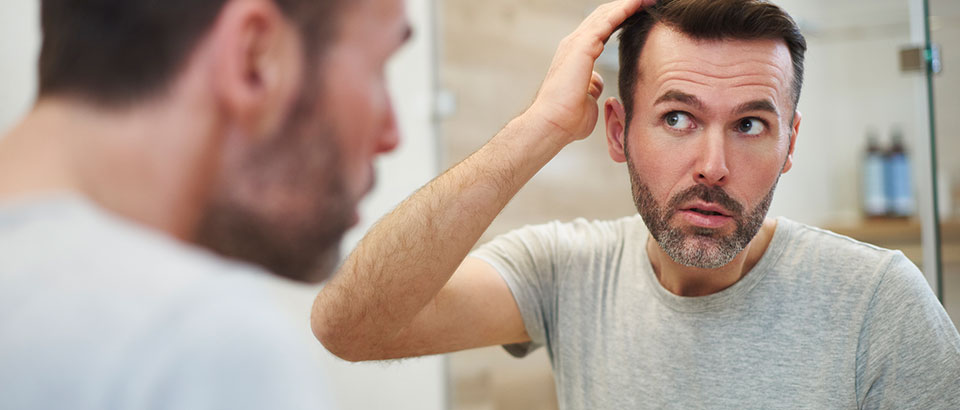January 6, 2020
It's no surprise our readers seemed to love our blog article with answers to some awkward, embarrassing, uncomfortable health questions that you may be afraid to ask your doctor. Who doesn't like to read about strange body functions, like sweat and body odor, and what to do about them? So back by popular demand, we're bringing you Answers to Your Awkward Health Questions: Volume 2 – chock-full of even more answers to some of your toughest, most awkward health questions, including irritable bowel syndrome, cold sores, and so much more.
1. Is a Cold Sore Technically a Sexually Transmitted Disease?
We get this one a lot – probably because cold sores are very common, with more than half of Americans ages 14 to 49 carrying the virus that causes cold sores, according to the American Academy of Dermatology.1

Cold sores, which are most often characterized by those tingly, crusty blisters around your lips, are in fact caused by the herpes virus, which of course makes many people think of genital herpes, a sexually transmitted disease. But just because you have oral herpes (aka cold sores) does not mean you have genital herpes, too. In fact, most cases of genital herpes are caused by a different virus called HSV-2 – a different virus that's in the same family as the virus that causes cold sores. Cold sores, on the other hand, are most often caused by herpes simplex virus type 1 (HSV-1). HSV-2 very rarely appears on the face or around the mouth where you would typically find a cold sore and vice versa. Phew – great news, right?
Well, kind of. When you have a cold sore, it's still important to abstain from kissing or being intimate with your partner because, while rare, it is possible that the virus HSV-1 can be transmitted to the genitals.
MedExpress Pro Tip: Cold sores are no fun, and unfortunately, there's no magic potion to make them go away super quickly. However, there are some over-the-counter medications that may help reduce inflammation and possibly help clear them up faster. If you have recurrent, stubborn cold sores, visit a healthcare professional, who may be able to give you a prescription medication, which are often very effective. Plus, cool compresses and pain-relieving creams are available to help make them a little less uncomfortable.
Speaking of painful sores, you might be wondering – what the heck are those annoying bumps that sometimes appear on the inside of your mouth? Are those cold sores? Most of the time, no. Cold sores typically appear on the outside of your mouth around your lips. Those gray or white bumps on the inside of your mouth are most likely canker sores, which can also be very painful – but, luckily, not contagious.
2. Why Do I Smell Even After I Shower?
Everyone sweats, and everyone has body odor (yes, even you!) So why does it seem like some people are more prone to smelling a little worse than others? Well, it turns out that it might actually be because – and in this case, we mean this literally – you are what you eat. If you're someone who really enjoys spicy foods, or even, ahem, "fragrant" foods like garlic and onions, you might smell differently than someone who doesn't. That's because as your body digests these kind of foods, compounds are released through pores in the skin. For some people, that might mean you could smell a little like the pile of onions you just ate on your burger.

Other factors that can impact your natural scent are body weight (skin folds can harbor bacteria that may smell), certain medical conditions (diabetes, thyroid issues, and kidney or liver problems can change your odor), stress, or excessive sweating (also called hyperhidrosis). If you feel like something's just not quite right, talk to a healthcare professional who can help identify the cause and get you smelling fresh as a daisy.
MedExpress Pro Tip: If you feel like you smell even shortly after you shower, never fear. Just try switching up your products. Using a gentle cleanser with tea tree oil can actually help shrink pores and minimize sweat. Make sure you check with a healthcare professional before switching up your cleanser.
3. What Are The Signs of Irritable Bowel Syndrome?
Ooph. Is your stomach disagreeing with that burrito you ate at lunch today, or could it be something more? Sometimes it can be hard to tell! Luckily, we're here to help.
Irritable bowel syndrome, or IBS, is a chronic condition that affects the large intestine and requires ongoing care once diagnosed. While the exact cause of IBS is still widely unknown, there are a few factors that can play a role, including inflammation in the intestines, changes to gut bacteria, and more.
So how can you tell the difference between IBS and just your run-of-the-mill stomach virus or upset stomach? Great question. Symptoms are just ever-so-slightly different. An upset stomach, for example, typically causes pain in the upper abdomen and can result in nausea or vomiting. IBS, on the other hand, typically affects the lower abdomen and most often cause constipation, diarrhea, or both. Another good way to tell the difference between a stomachache and IBS is to think about frequency. The stomach virus will come and go typically pretty quickly – whereas IBS is a chronic condition that has recurring symptoms over time.
No matter what, if you're worried about abdominal pain or are experiencing changes to your bathroom habits, it's always a good idea to consult a healthcare professional. Your doctor can help run tests to help determine the cause and can recommend an appropriate treatment plan.
4. Why is My Hair Falling Out?
Whether you're young or old, hair loss (or, in fancy terms, alopecia) can be very stressful, especially if you don't know the exact cause. And on top of that, it can be embarrassing – though it shouldn't be, because you aren't alone. About 80 million men and women in the United States have hereditary hair loss, the most common cause of hair loss, otherwise known as male- or female-pattern baldness or androgenetic alopecia.2 That's a lot of people!

If hair loss doesn't run in your family but you're still experiencing changes to your hair growth, there are many possible causes – and the good news is that most are treatable. These causes can range from physical stress, surgery, or illness, or even result as changes during pregnancy, your diet, thyroid disorders, and anemia due to an iron deficiency. Certain medications, like birth control, blood thinners, or antidepressants, can also cause hair loss. A healthcare professional can help you narrow down what might be the issue and offer treatment plans or adjust medications to help get your luscious locks back.
5. I've Been Having Trouble Controlling My Bladder, and I've Even Peed My Pants a Few Times. What Does This Mean?
We're glad you asked. We get a lot of questions about loss of bladder control, or urinary incontinence. It can be an embarrassing problem to have – but again, you're not alone. Many people experience urinary incontinence as they get older, and treatment is possible with the help of a healthcare professional.
There are a variety of factors that might be contributing to bladder control loss – some of which are temporary, while others may be more long-term. For example, urinary tract infections are a common cause of temporary loss of bladder control. These infections irritate the bladder and cause strong, sudden urges to urinate. Sometimes these urges come on so suddenly that it can be difficult to make it to the bathroom in time. In this case, bladder control is often completely regained once the infection is treated.
Persistent or more long-term urinary incontinence is also common, particularly among women. This won't come as a surprise to you once you learn that pregnancy, childbirth, menopause, and hysterectomies can all cause loss of bladder control. Men aren't completely off the hook, though, as prostate cancer or an enlarged prostate can also cause persistent urinary incontinence.
Many of these issues can be easily treated with lifestyle changes, like making small adjustments to your daily bathroom schedule, bladder training, or tweaking your diet and fluid intake. It's just important to visit a healthcare professional to discuss the best options, especially if urinary incontinence is interfering with your daily life, or if you're experiencing sudden changes to your bladder habits.
6. My Period Has Become More Irregular Than Usual. Should I Be Worried?
It's that time of the month, and you're anxiously awaiting a visit from Aunt Flo(w). But what does it mean when she doesn't show? First of all, it's important not to panic. While sudden changes to your menstrual cycle can be a sign of something more serious, there are also a lot of less-scary reasons why your body might be going through some changes. For example, have you started a new medication recently? Blood thinners, epilepsy drugs, antidepressants, and even aspirin or ibuprofen can impact your menstrual cycle. If that's the case, it's worth talking to your doctor, who can help adjust your dose or recommend alternatives if irregular periods aren't your style.
Believe it or not, stress is another reason why a lot of women experience changes to their menstrual cycle every now and again. That's because your menstrual cycle is controlled by the hypothalamus, a part of the brain that's kind of got a big job to do. Not only is it responsible for triggering the start of your menstrual cycle, it also keeps other bodily functions, like body temperature, hunger, and thirst in check. When you experience stress, the hypothalamus jumps into overdrive and triggers certain hormones to cope with that feeling – and it's that mish-mash of hormones that can cause your period to come a little later or earlier – or sometimes, not at all. If you miss two periods in a row , it's a good idea to check with your doctor to make sure nothing's going on down there. And don't forget, if the pitter patter of little feet is a possibility, take advantage of the at-home pregnancy test.
So, there you go. Answers to six more of your awkward, uncomfortable, not-so-cool health questions. While we're happy to help answer these questions (and more!), remember that no question is too big or too embarrassing for a healthcare professional. For more information about having difficult questions with your doctor, check out Volume 1 of this Awkward Questions Series on our blog that offers tips on how to make those conversations just a little bit easier.
References
1 American Academy of Dermatology: Cold Sores. Accessed July 23, 2019.
2 American Academy of Dermatology: Hair Loss. Accessed July 23, 2019.
